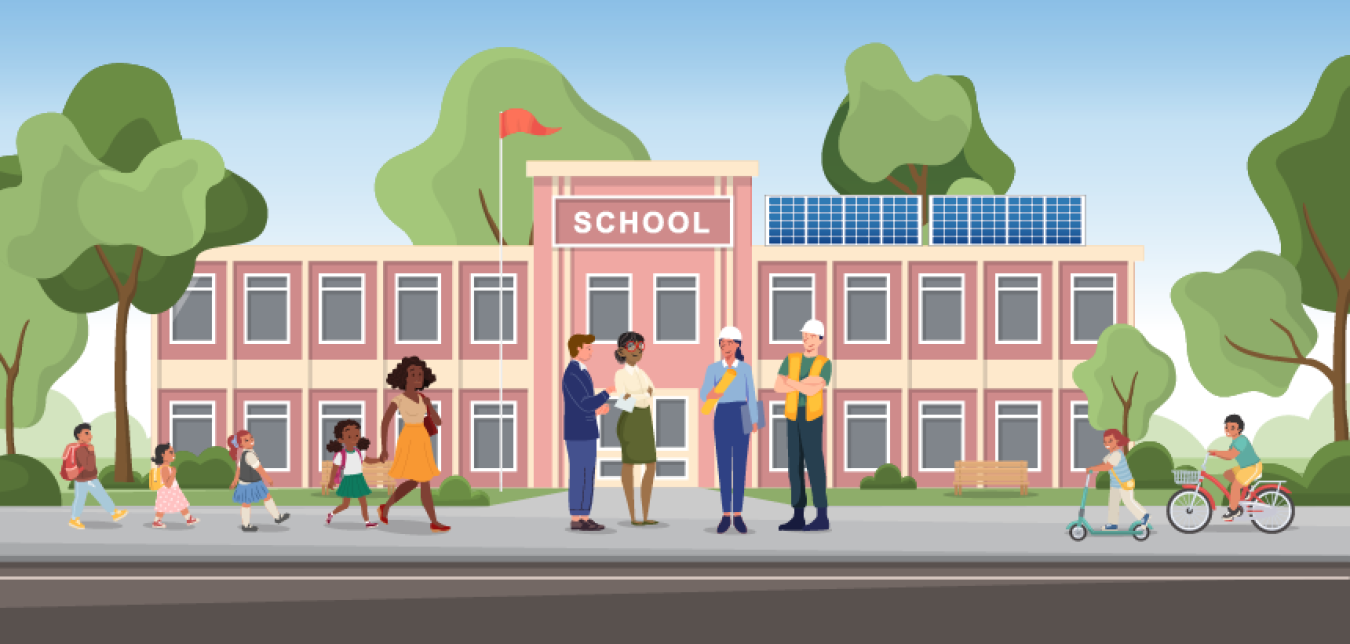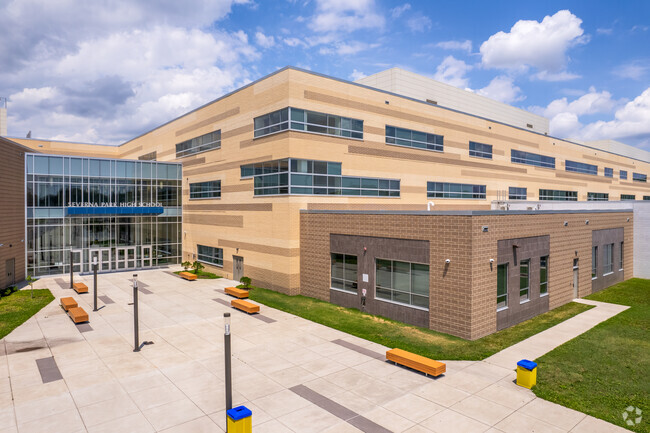Discover the Conveniences of Advocacy: Save Temecula Schools
Comprehending the Value of Institutions in Child Growth and Community Growth
Schools act as critical establishments for child development and area development, providing settings where scholastic accomplishments are enhanced by the cultivation of social skills and direct exposure to varied viewpoints. These educational settings not just promote essential thinking and effective interaction but likewise foster empathy through collective tasks. Additionally, institutions' engagement with local areas via service-learning campaigns strengthens the bond between family members and educational institutions. This symbiotic relationship emphasizes the importance of schools in nurturing active citizenship and lifelong understanding routines. Nonetheless, what are the certain devices by which these organizations accomplish such profound influences?
Academic Success
Academic achievement functions as a cornerstone of child advancement, providing the foundation whereupon future understanding and success are developed. Schools play an essential function in cultivating this scholastic growth, offering organized atmospheres where youngsters can obtain essential expertise and cognitive abilities. Standard educational program ensure that trainees gain efficiency in core topics such as maths, scientific research, and language arts, which are vital for both college and professional possibilities.
In enhancement to giving essential scholastic skills, institutions additionally grow vital reasoning, analytical capacities, and intellectual interest. These cognitive expertises are vital for navigating intricate real-world circumstances and adapting to the ever-evolving needs of the modern-day work environment. Teachers, as facilitators of learning, utilize varied instructional strategies to cater to diverse knowing designs, thereby maximizing private student capacity.
In addition, academic success is very closely linked to self-confidence and motivation. Children that experience scholastic accomplishments are most likely to establish a favorable self-concept and a long-lasting passion for discovering. Institutions also use different sources, such as libraries and modern technology, which additionally boost the instructional experience and prepare pupils for a technologically innovative society.
Social Skill Advancement
Beyond academic success, the duty of institutions in social ability growth is important. Schools act as a key location for youngsters to learn and exercise essential social skills such as dispute, communication, and teamwork resolution. In the structured environment of a classroom, pupils engage with peers, teachers, and other college team, using numerous opportunities to create these important capabilities.
Efficient social ability advancement in schools is promoted through group activities, joint tasks, and extracurricular programs. These interactions help trainees comprehend social norms, construct compassion, and foster a feeling of community. As an example, group assignments instruct pupils exactly how to work together towards a typical goal, listen to different perspectives, and navigate arguments constructively.

The growing of social skills during academic year lays a foundation for future personal and specialist relationships. Save Temecula Schools. As students develop, the capacity to efficiently collaborate and interact Recommended Site comes to be significantly vital, highlighting the school's crucial duty in alternative youngster advancement
Direct Exposure to Variety
Exposure to diversity in schools is basic to promoting a comprehensive attitude and broadening students' perspectives. Schools function as a microcosm of the more comprehensive culture, and coming across diverse societies, languages, and socioeconomic backgrounds within this environment equips students with important abilities for navigating a progressively globalized world. This direct exposure motivates empathy, lowers prejudices, and promotes common respect among peers.
Diverse classrooms additionally enhance social and cognitive growth. Study indicates that pupils that interact with peers from diverse backgrounds exhibit much better analytic skills and creative thinking. They learn to appreciate different viewpoints, which enriches class conversations and promotes an extra dynamic understanding experience. This understanding of advice variety prepares students for future work environments that value modern proficiency.

Community Engagement
The benefits of diverse class prolong past the school wall surfaces, cultivating a strong sense of neighborhood interaction amongst trainees. By interacting with peers from different cultural, socioeconomic, and ethnic backgrounds, students get a wider perspective and a gratitude for variety. This exposure motivates them to become energetic residents that are eager to add positively to their communities.
Institutions that stress neighborhood interaction often include service-learning jobs, which allow pupils to deal with real-world issues while applying scholastic abilities. These tasks not only improve students' understanding of their coursework but likewise impart a sense of responsibility and compassion. Partnerships in between institutions and regional organizations give pupils with chances to get involved in neighborhood occasions, better solidifying their duty as positive area members - Save Temecula Schools.
In addition, parental and neighborhood involvement in colleges read review strengthens the bond in between educational organizations and the areas they offer. Via these initiatives, colleges play an essential function in supporting area involvement and promoting societal development.
Lifelong Understanding Routines
Developing long-lasting knowing behaviors is crucial for a youngster's continuous development and flexibility in an ever-changing world. Schools play a crucial function in instilling these habits by creating an environment that cultivates curiosity, essential reasoning, and a love for knowledge. Via extracurricular activities and diverse educational programs, instructors urge trainees to explore different topics, analyze details seriously, and apply their finding out to real-world scenarios.

In addition, colleges provide a structured environment where kids can establish self-discipline and time management abilities, both of which are important for continuous knowing. By emphasizing the importance of establishing goals, assessing progress, and adapting strategies, universities prepare trainees to navigate the complexities of adult life, guaranteeing they continue to be lifelong learners and factors to society.
Final Thought
In final thought, colleges are necessary in fostering kid development and neighborhood development by supplying settings conducive to academic achievement, social skill advancement, and direct exposure to diversity. Ultimately, institutions cultivate lifelong discovering behaviors, gearing up individuals with the essential expertise and abilities to add favorably to society.
In the structured setting of a classroom, students communicate with peers, instructors, and other institution personnel, providing various opportunities to establish these essential capabilities.
In significance, exposure to diversity within institutions not only improves specific trainees but additionally strengthens the social textile of the community as a whole.
The benefits of varied class prolong past the institution walls, fostering a strong feeling of neighborhood engagement amongst trainees.Schools that emphasize area engagement commonly include service-learning projects, which allow students to deal with real-world troubles while using academic skills. Collaborations between institutions and neighborhood organizations offer students with chances to participate in area occasions, additionally strengthening their duty as proactive area participants.